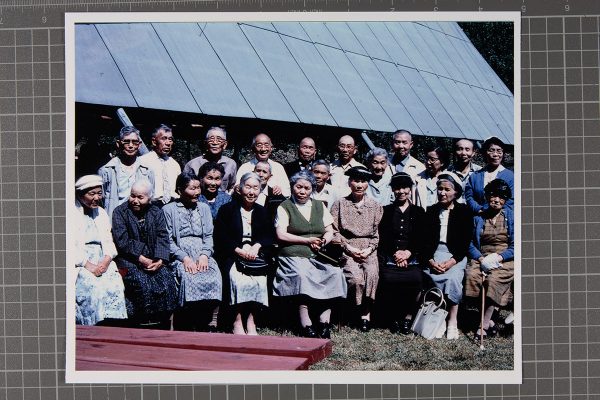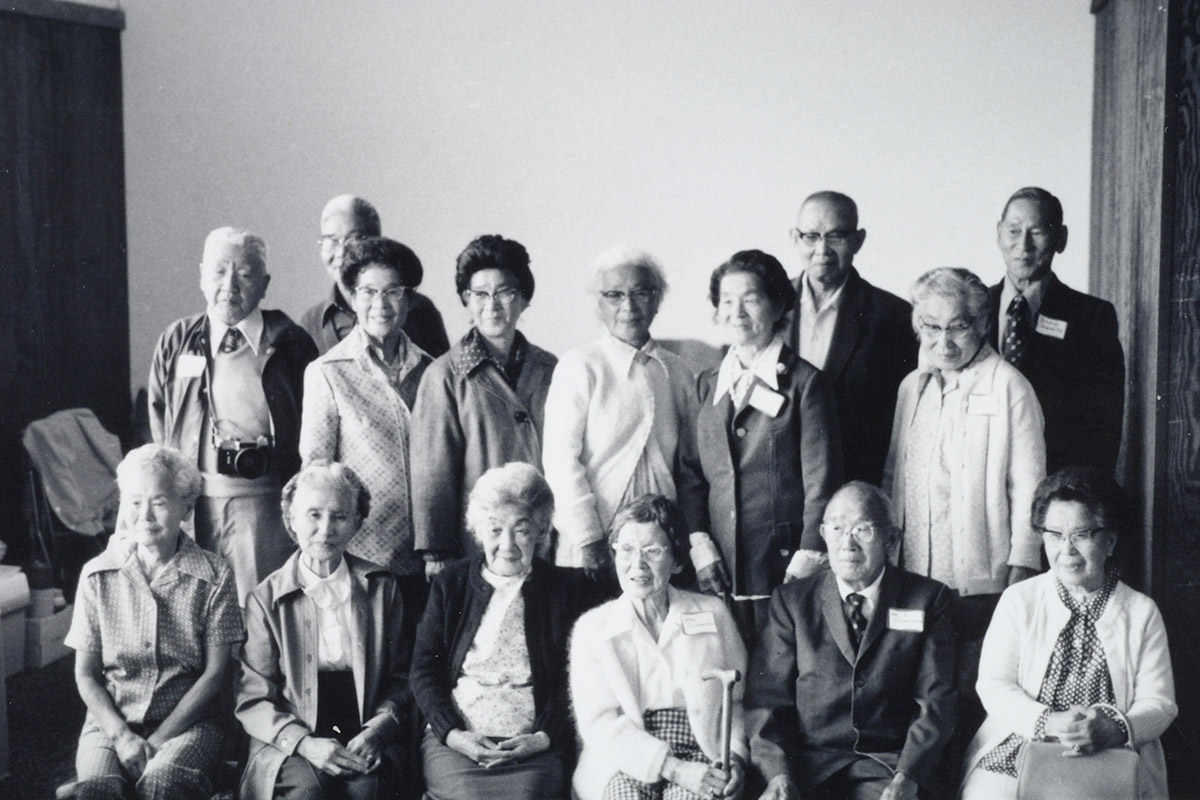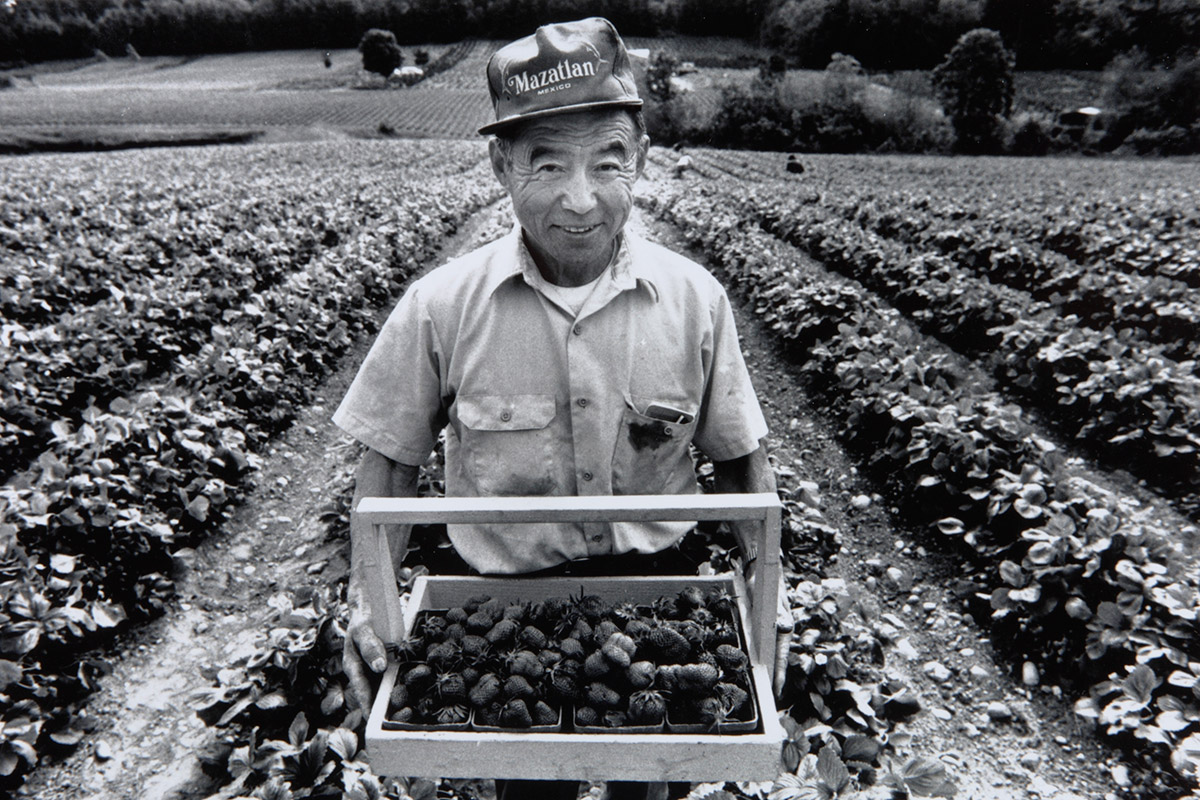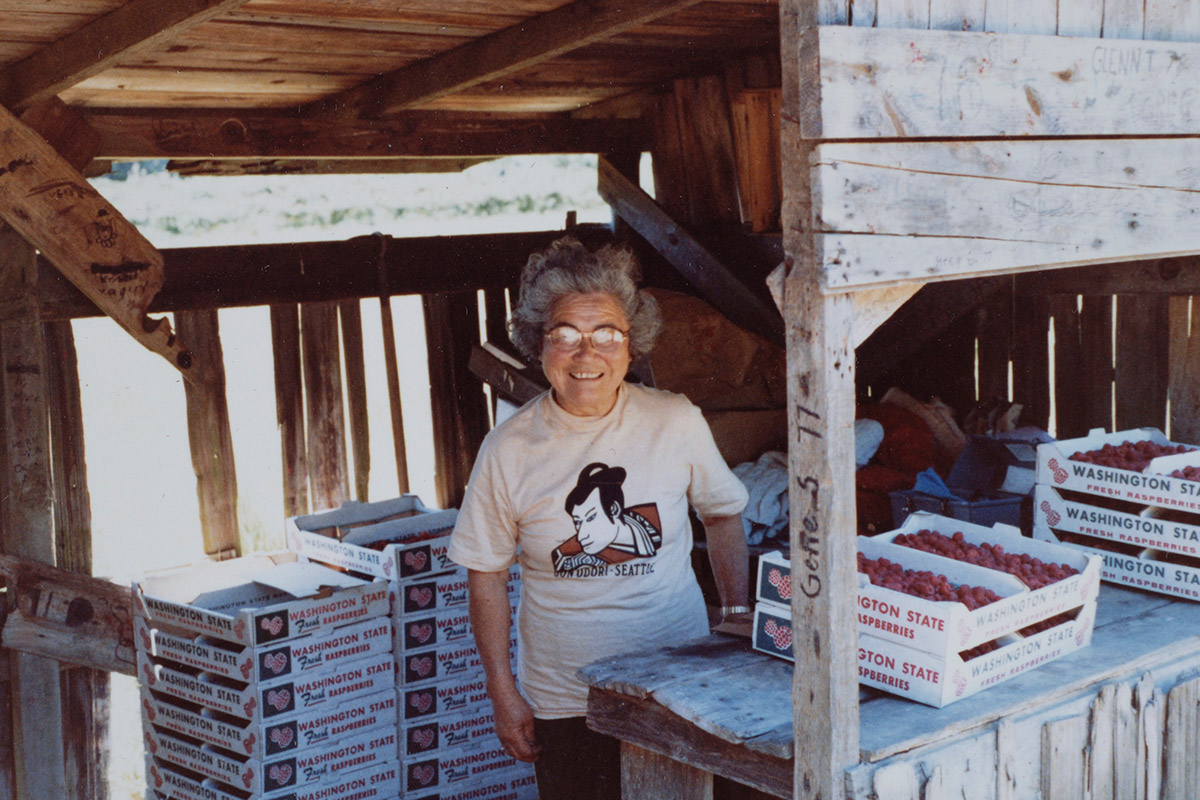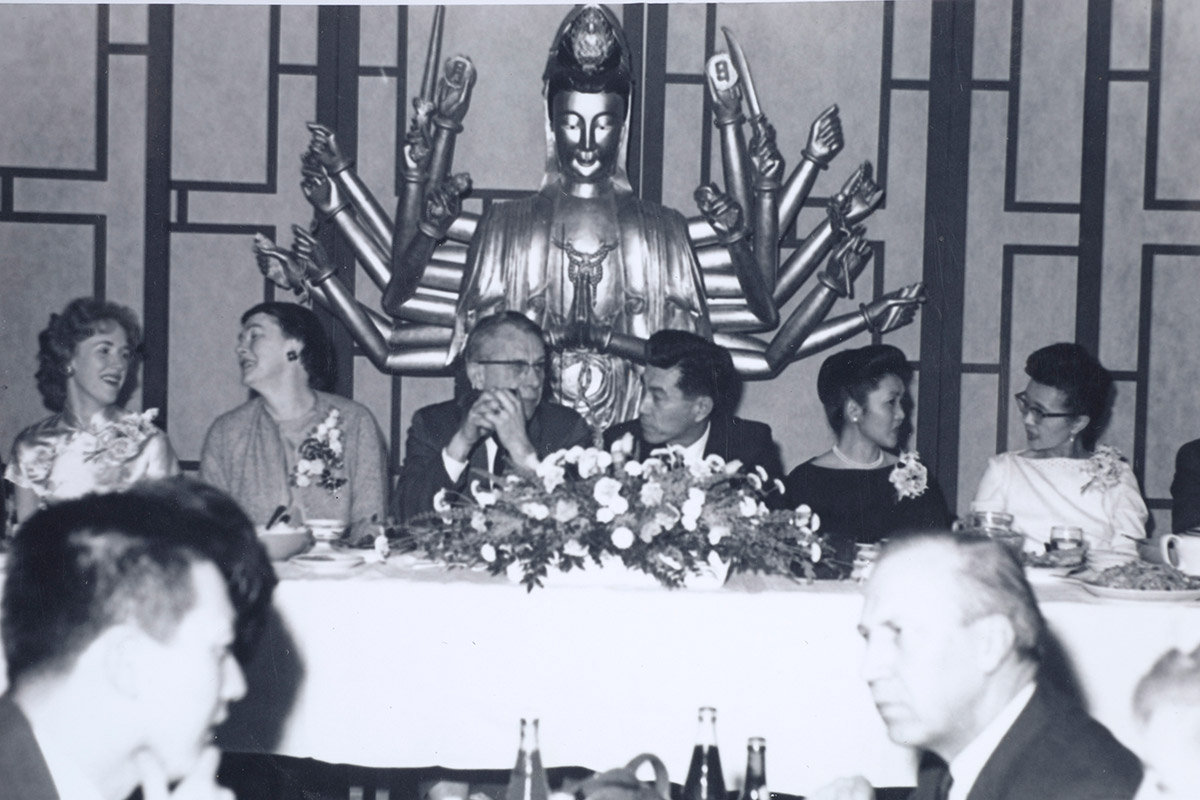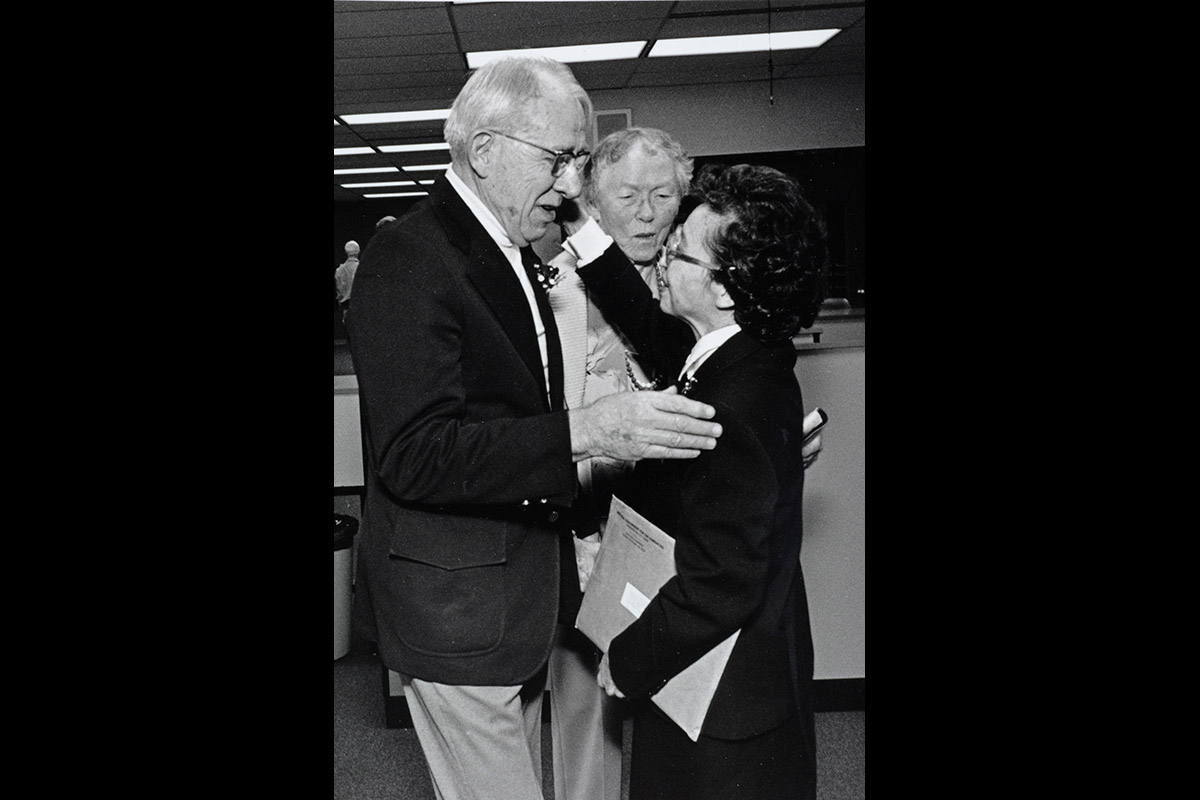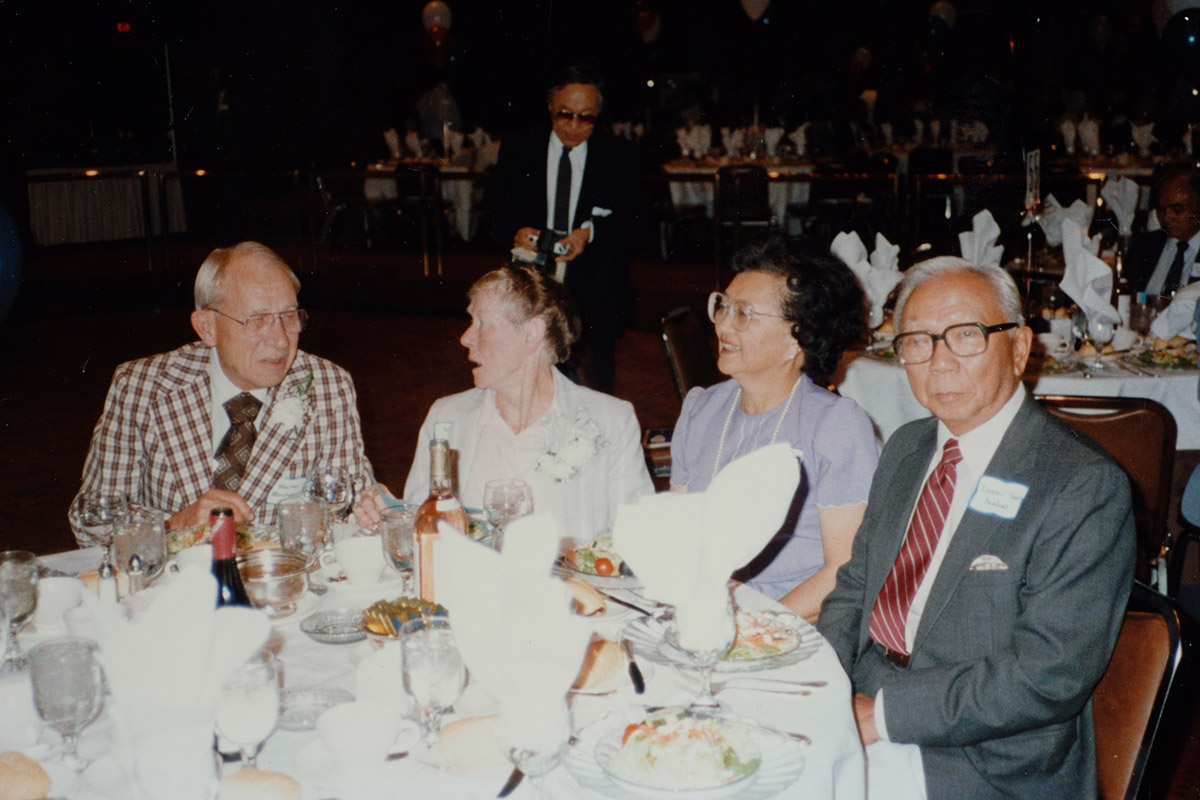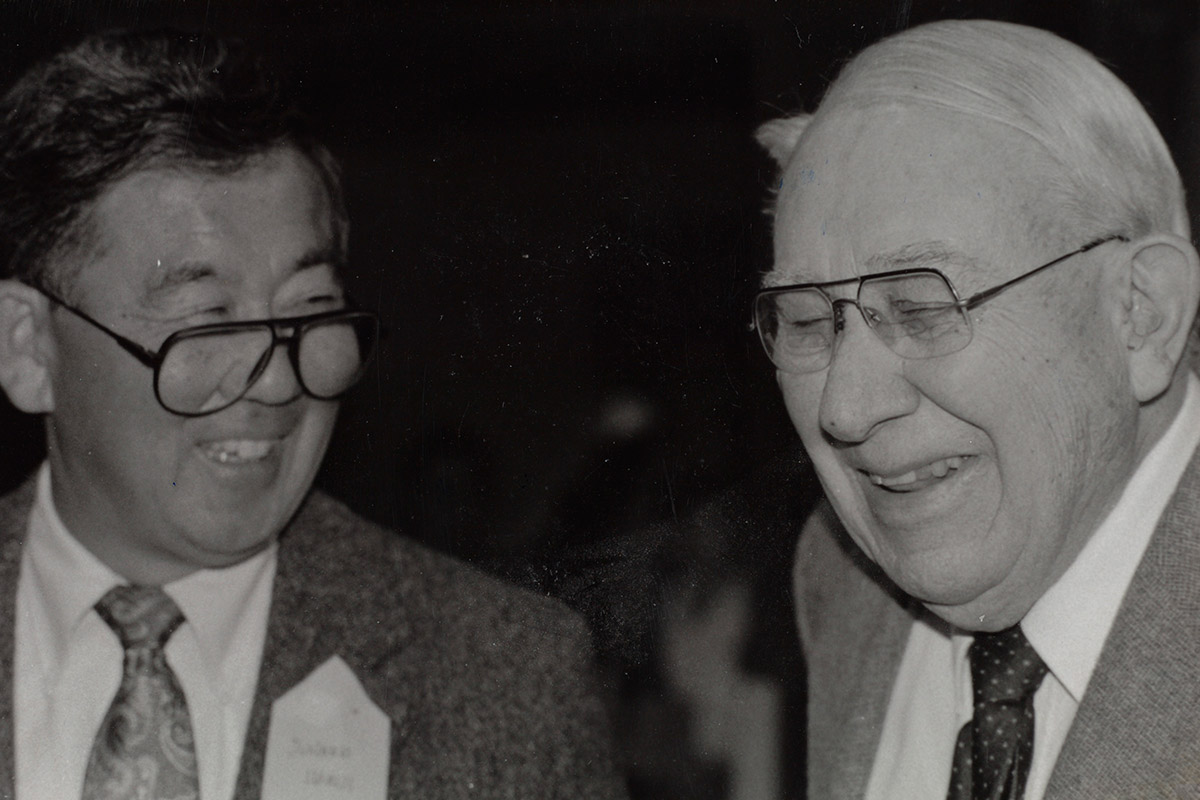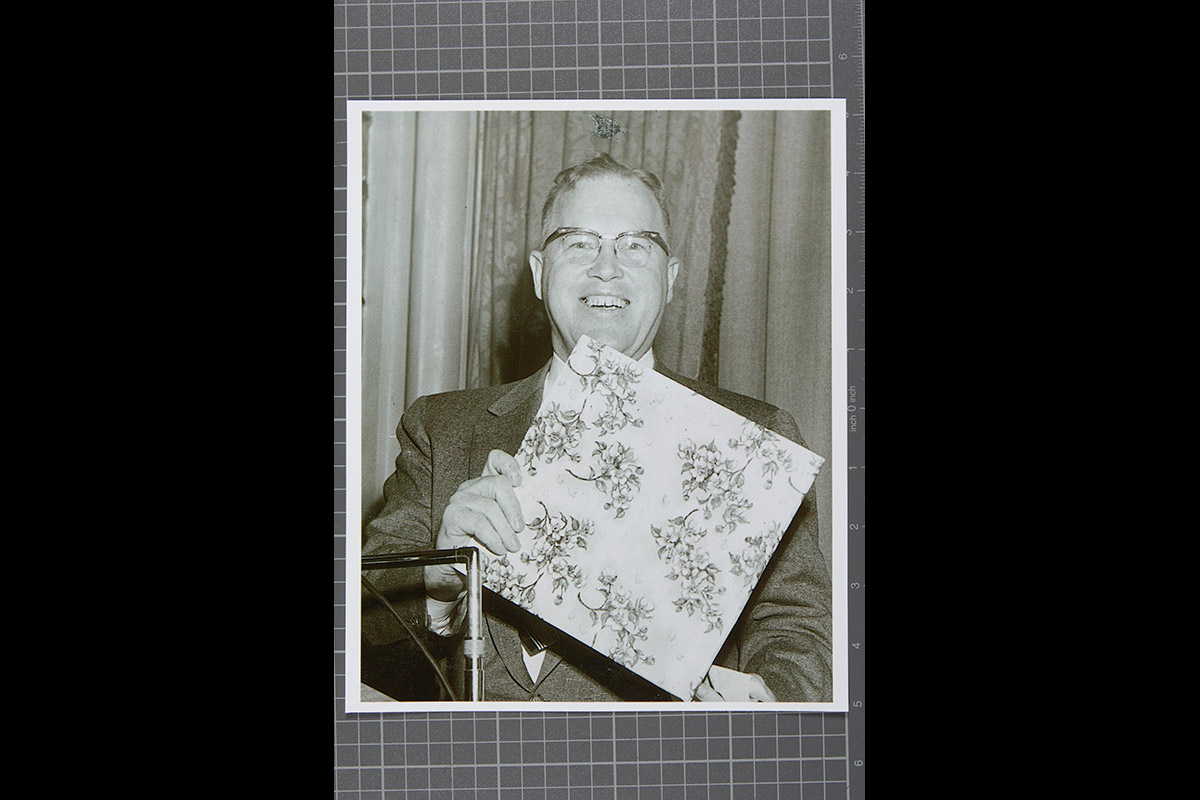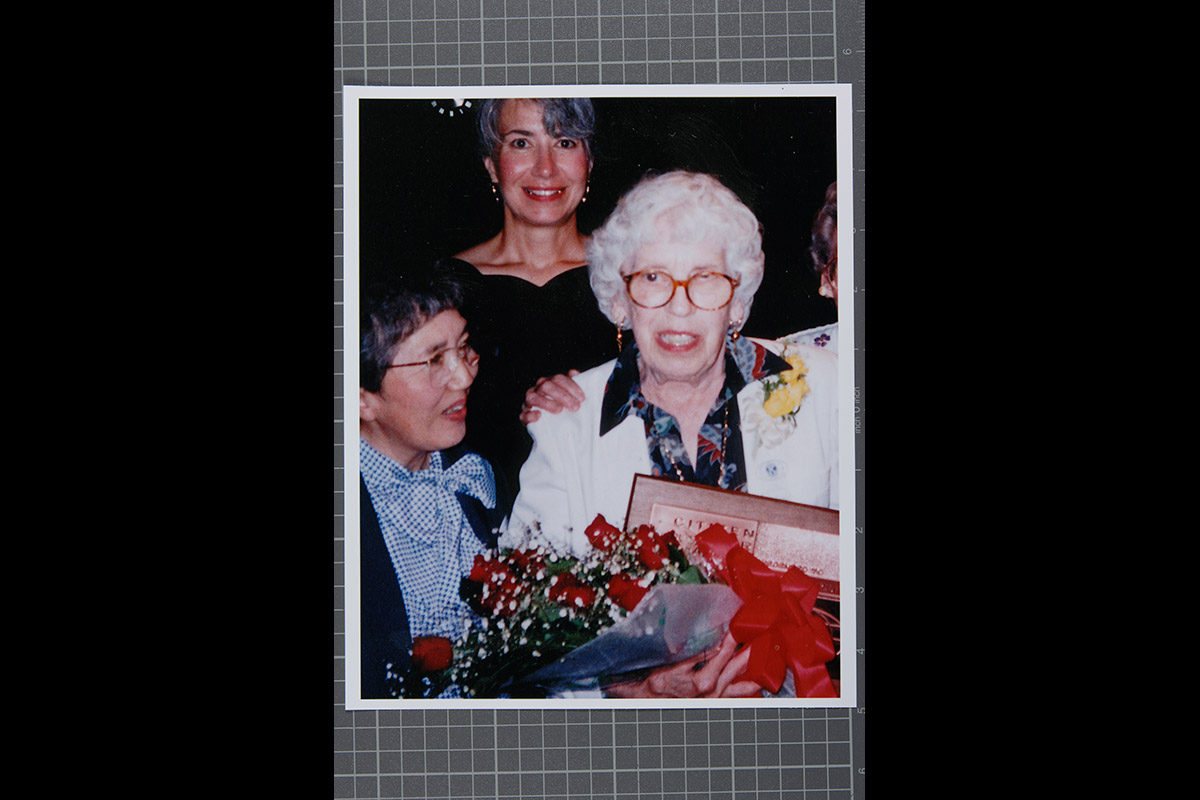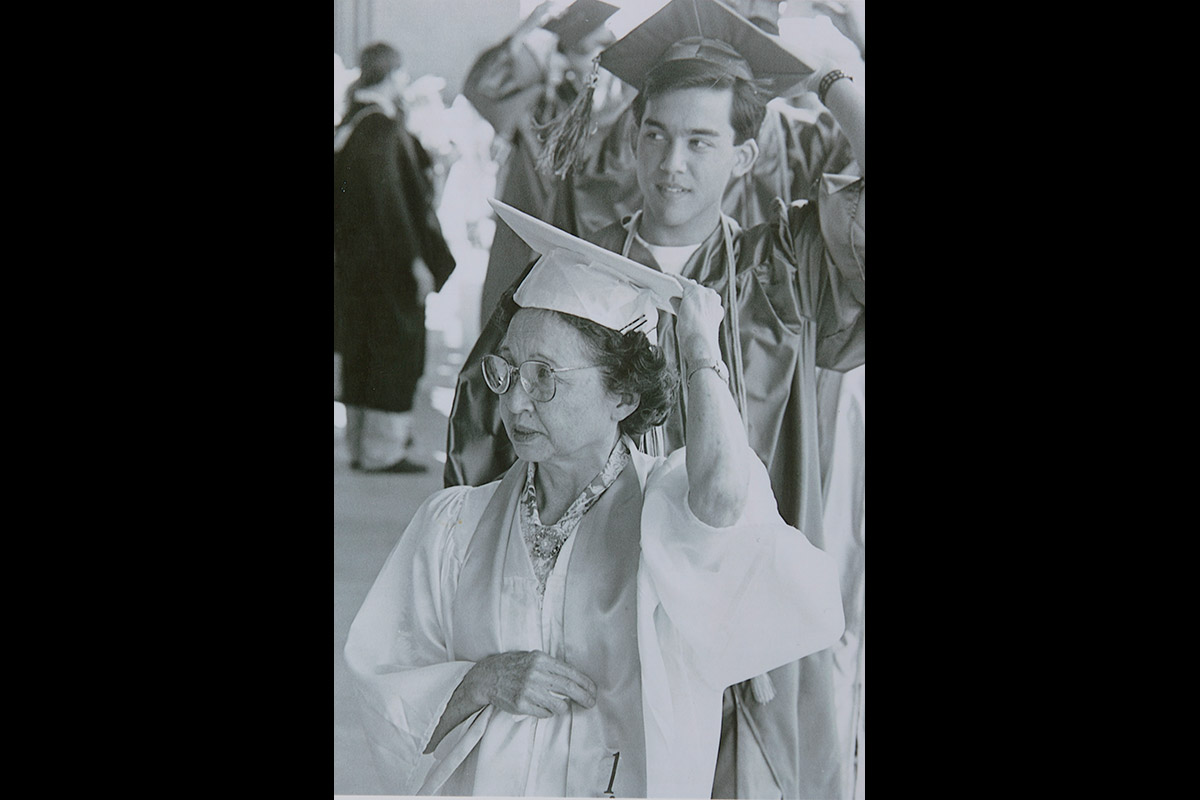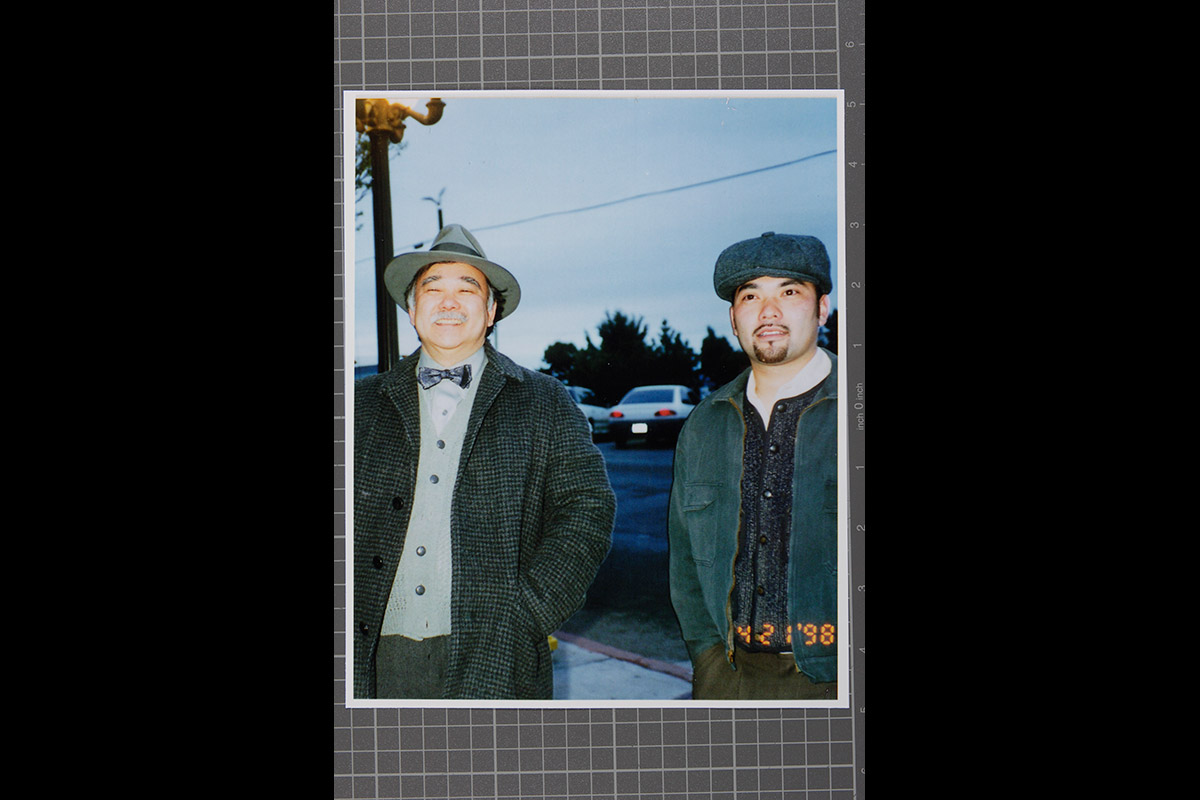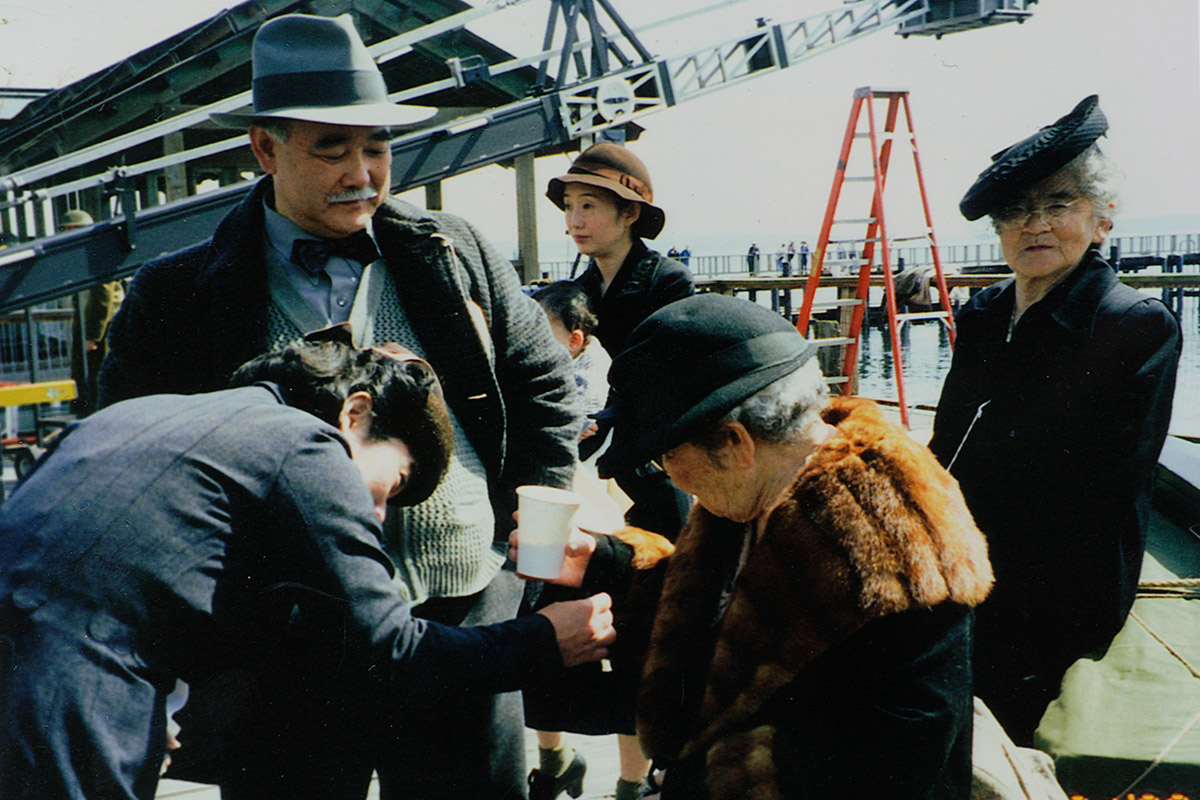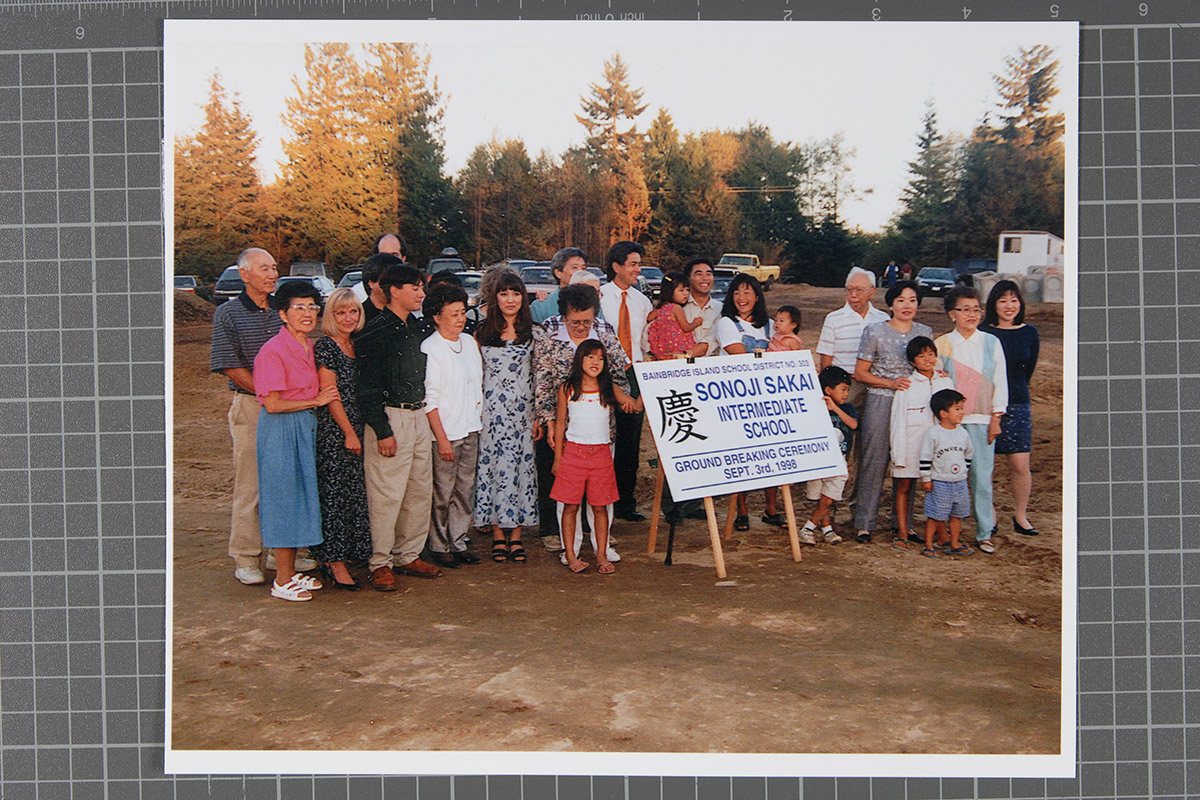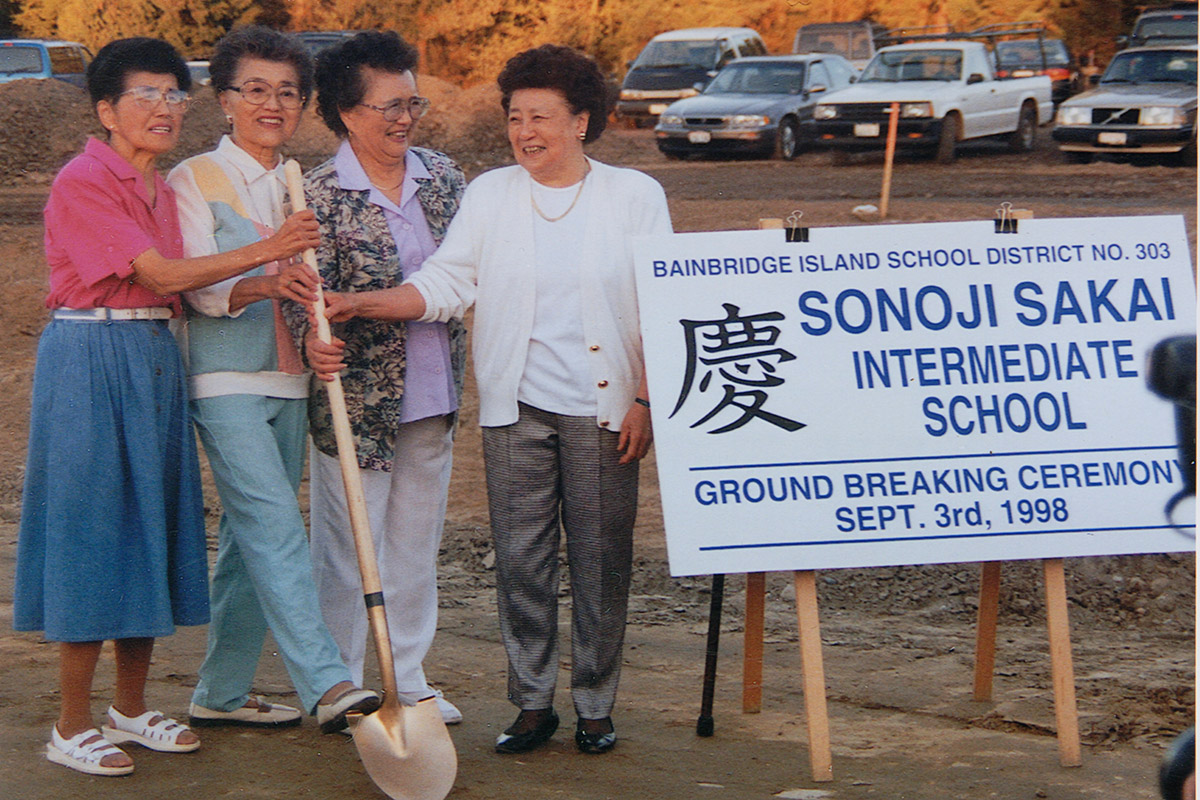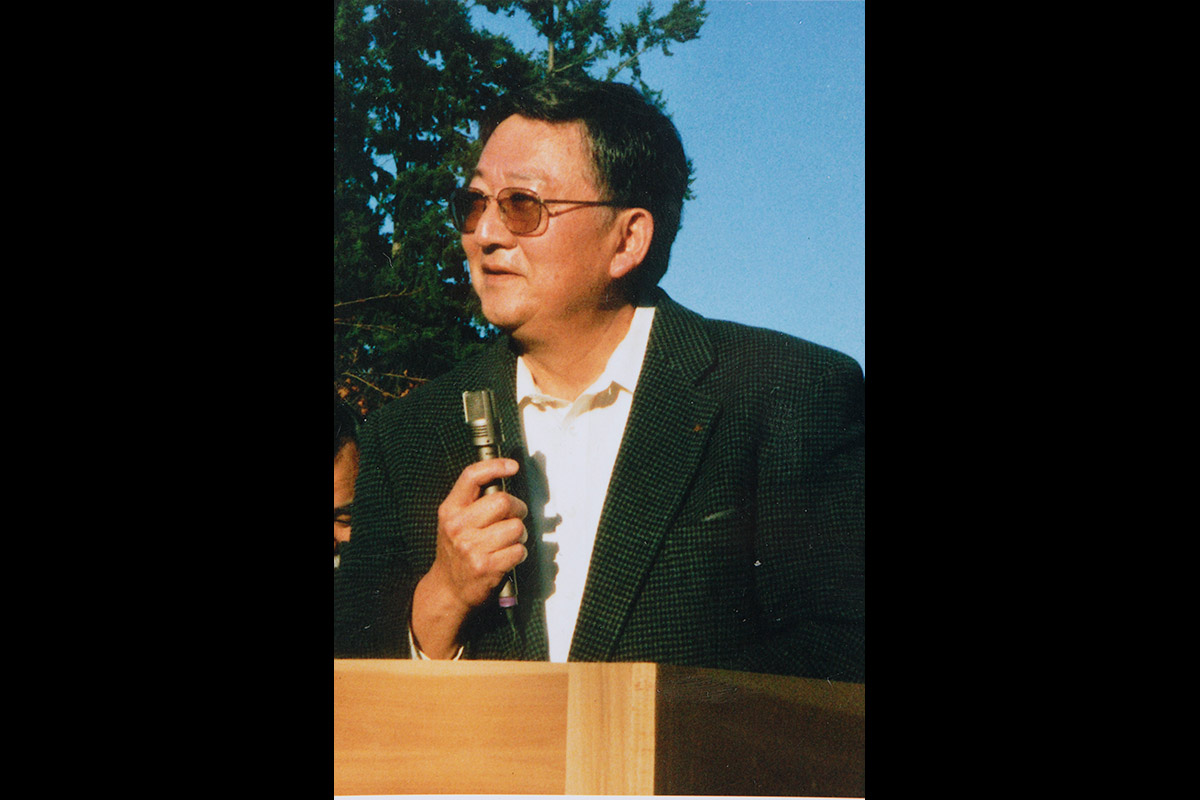In 1952 the Bainbridge Island Japanese American Community organized itself into an official "club" with a main purpose of sponsoring social activities and providing community support. Picnics and potlucks were organized over the years to help maintain connections within the community for those living both on and off the island. As the Issei passed on and the Nisei and Sansei got involved in other activities, the group slowly became less active.
In the 70s Junkoh Harui, Frank Kitamoto, Don Nakata, Ron Nakata, and John Sakai, realizing the importance of preserving their heritage, started an oral history project. For years they were met with resistance. Many wished to forget the past and were shy about sharing their feelings and experiences of that time. Several things happened during the next few decades that turned this sentiment around. The Woodwards, who always felt they were just doing their job by reporting all sides of every story, started to receive many awards in recognition of their unique stance against exclusion during the war.
With each ceremony and speech given, more and more people started to reflect on how the Woodwards affected their lives. In the early 80s producers John de Graaf and Cris Anderson started to record interviews of Island Issei and Nisei in preparation for their PBS documentary Visible Target. Once people started sharing their stories they found it both healing and rewarding to leave part of their history for future generations. In 1995 David Guterson's book Snow Falling on Cedars, whose main character was based roughly on Walt Woodward, brought the story of Japanese exclusion and internment to the mainstream. In the 1990s the naming of two Bainbridge Island schools, Woodward Middle School and Sakai Intermediate School, showed the importance this Island felt in remembering and preserving the events of World War Two.
Today the Bainbridge Island Japanese American Community is dedicated to preserving its history and the lessons learned when fear overcomes the importance of constitutional rights and prejudice blinds people from seeing others as individuals.
Slideshow
 We honor and recognize the Issei today for their considerable hard work and sacrifice. They came to this country with very little and built successful farms and businesses in spite of prejudice and racist laws that prevented them from becoming citizens or owning land. In 1942 their homes, livelihoods, and culture were taken from them yet they persevered.
We honor and recognize the Issei today for their considerable hard work and sacrifice. They came to this country with very little and built successful farms and businesses in spite of prejudice and racist laws that prevented them from becoming citizens or owning land. In 1942 their homes, livelihoods, and culture were taken from them yet they persevered. The Issei built the Bainbridge Island Japanese American Community, their support network that helped them get through hard times. They gathered as a group several times in the decades following the war.
The Issei built the Bainbridge Island Japanese American Community, their support network that helped them get through hard times. They gathered as a group several times in the decades following the war. Akio Suyematsu is the lone Bainbridge Nikkei who farmed into the twenty-first century. From horse and plow, to tractor, to organic farming, Akio has adapted his techniques while remaining faithful to the bountiful land he so loves.
Akio Suyematsu is the lone Bainbridge Nikkei who farmed into the twenty-first century. From horse and plow, to tractor, to organic farming, Akio has adapted his techniques while remaining faithful to the bountiful land he so loves. From the 50s through the 70s many Island Nikkei helped pick berries on the few remaining Island farms. Though hard work, it was also a time to build comraderie and remember their island roots and the Issei who cleared these fields years before.
From the 50s through the 70s many Island Nikkei helped pick berries on the few remaining Island farms. Though hard work, it was also a time to build comraderie and remember their island roots and the Issei who cleared these fields years before. In the early 1900s, Shigeko's parents farmed this land. When they moved back to Japan before WWII, they sold the land to Shigeko. Following WWII, Shigeko's husband, Frank, opened a jewelry store in Seattle. In the 1950s Shigeko farmed her family land again, this time with raspberries. She used the money she earned to put her three daughters through college.
In the early 1900s, Shigeko's parents farmed this land. When they moved back to Japan before WWII, they sold the land to Shigeko. Following WWII, Shigeko's husband, Frank, opened a jewelry store in Seattle. In the 1950s Shigeko farmed her family land again, this time with raspberries. She used the money she earned to put her three daughters through college. Exhibits such as this traveling photo display created by the Bainbridge Island Japanese American Community help promote awareness of exclusion and detention and the importance of safeguarding our constitutional rights. These Nisei women from Bainbridge Island helped show they support for such projects by sharing their stories and feelings about these topics.
Exhibits such as this traveling photo display created by the Bainbridge Island Japanese American Community help promote awareness of exclusion and detention and the importance of safeguarding our constitutional rights. These Nisei women from Bainbridge Island helped show they support for such projects by sharing their stories and feelings about these topics. On January 13, 1963 the Bainbridge Island Japanese community said thank you to Milly and Walt at a dinner in their honor. Yoshiaki Amatatsu spoke in Japanese. The Woodwards, he said, "at possible personal sacrifice, stood up in our behalf, which contributed in enabling our return."
On January 13, 1963 the Bainbridge Island Japanese community said thank you to Milly and Walt at a dinner in their honor. Yoshiaki Amatatsu spoke in Japanese. The Woodwards, he said, "at possible personal sacrifice, stood up in our behalf, which contributed in enabling our return." Sachiko was a camp correspondent for the Review during the war. Here she congratulates Walt and Milly Woodward after they received the Edison Uno Civil Rights Award at the National JACL Convention in Chicago, Illinois on July 21, 1986.
Sachiko was a camp correspondent for the Review during the war. Here she congratulates Walt and Milly Woodward after they received the Edison Uno Civil Rights Award at the National JACL Convention in Chicago, Illinois on July 21, 1986. Walt and Milly Woodward and longtime friends Kay and Sam Nakao share a table. On this night former Manzanar inmates declared the Woodwards "Defenders of the Constitution" and presented them with an award honoring their stance during the war.
Walt and Milly Woodward and longtime friends Kay and Sam Nakao share a table. On this night former Manzanar inmates declared the Woodwards "Defenders of the Constitution" and presented them with an award honoring their stance during the war. When Woodward Middle School on Bainbridge Island was dedicated in honor of Walt and Milly, longtime friend and owner of Bainbridge Gardens, Junkoh Harui was on stage. He shared with the capacity crowd how the Woodward's affected his life.
When Woodward Middle School on Bainbridge Island was dedicated in honor of Walt and Milly, longtime friend and owner of Bainbridge Gardens, Junkoh Harui was on stage. He shared with the capacity crowd how the Woodward's affected his life. Following WWII, Ken Meyers sold insurance policies to many Bainbridge Island Japanese American farmers in spite being told not to by his supervisors. He remained a loyal friend to many Island Nikkei for years to come.
Following WWII, Ken Meyers sold insurance policies to many Bainbridge Island Japanese American farmers in spite being told not to by his supervisors. He remained a loyal friend to many Island Nikkei for years to come. Lucille (right) was the long time historian for the Bainbridge Island Japanese American Community. She identified and cataloged hundreds of images in the BIJAC collection.
Lucille (right) was the long time historian for the Bainbridge Island Japanese American Community. She identified and cataloged hundreds of images in the BIJAC collection. In 1992, Bainbridge High School remembered its displaced graduates of 1942. Thirteen young people had been forced to leave their home just weeks before graduation. Fifty years later, these students were invited to participate in the school's formal graduation ceremonies. Sa Koura, Nobi Omoto, and Sue Yonemitsu were able to attend.
In 1992, Bainbridge High School remembered its displaced graduates of 1942. Thirteen young people had been forced to leave their home just weeks before graduation. Fifty years later, these students were invited to participate in the school's formal graduation ceremonies. Sa Koura, Nobi Omoto, and Sue Yonemitsu were able to attend. Frank Kitamoto, who was only two at the time of evacuation, and his son Derek, were extras in the evacuation scene of this movie. Portraying the march onto the ferry that Bainbridge Nikkei took in 1942, this scene was eerily familiar to the many Islanders who served as extras that day. Port Townsend, WA. April 21, 1998.
Frank Kitamoto, who was only two at the time of evacuation, and his son Derek, were extras in the evacuation scene of this movie. Portraying the march onto the ferry that Bainbridge Nikkei took in 1942, this scene was eerily familiar to the many Islanders who served as extras that day. Port Townsend, WA. April 21, 1998. Dressed in period clothing, carrying suitcases, and slowly walking down the road to the ferry dock many Islanders and their relatives recreated the solemn evacuation scene that had occurred fifty-six years earlier. Watching was a vivid illustration of what it must have been like for that group of Bainbridge Islanders as they said goodbye to their beloved island.
Dressed in period clothing, carrying suitcases, and slowly walking down the road to the ferry dock many Islanders and their relatives recreated the solemn evacuation scene that had occurred fifty-six years earlier. Watching was a vivid illustration of what it must have been like for that group of Bainbridge Islanders as they said goodbye to their beloved island. In 1948 Sonoji Sakai sold a large portion of his land to the Bainbridge Island School District for the same price he had paid for it more than a decade earlier. Considering how valuable land is to a farmer, this was a grand gesture on the part of Mr. Sakai. In September 1998 construction began on an intermediate school named in his honor.
In 1948 Sonoji Sakai sold a large portion of his land to the Bainbridge Island School District for the same price he had paid for it more than a decade earlier. Considering how valuable land is to a farmer, this was a grand gesture on the part of Mr. Sakai. In September 1998 construction began on an intermediate school named in his honor. Education for his children was a top priority to Sonoji Sakai. He was grateful to the Bainbridge Island School District for its years of service to his kids. Left to right: Yae Yoshihara, Nobi Omoto, Kay Nakao, and Kimi Sakai.
Education for his children was a top priority to Sonoji Sakai. He was grateful to the Bainbridge Island School District for its years of service to his kids. Left to right: Yae Yoshihara, Nobi Omoto, Kay Nakao, and Kimi Sakai. Don was a longtime leader in the Japanese American Community on Bainbridge Island who helped rejuvenate BIJAC and set its course in preserving Nikkei history and supporting projects that promote civil liberties.
Don was a longtime leader in the Japanese American Community on Bainbridge Island who helped rejuvenate BIJAC and set its course in preserving Nikkei history and supporting projects that promote civil liberties.

